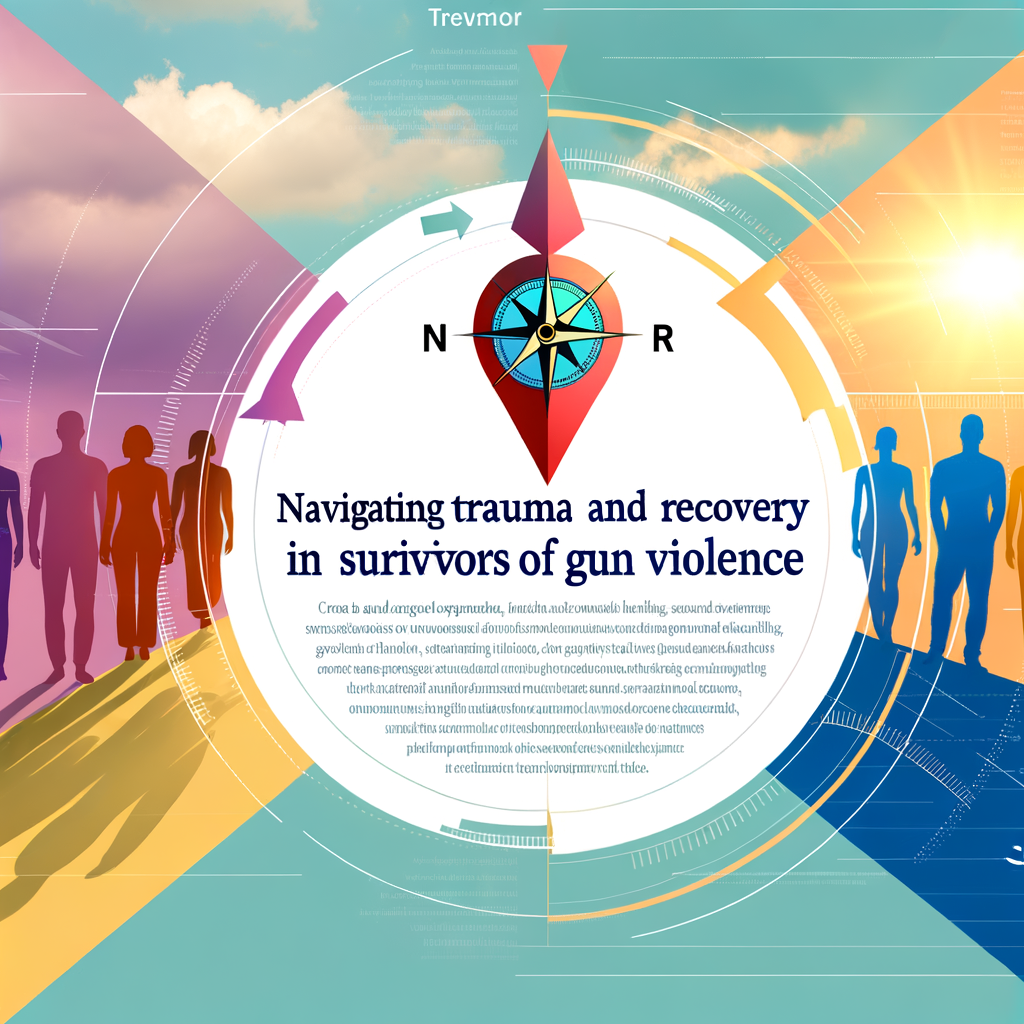Survivors of Gun Violence: A Closer Look at Trauma and Recovery
Introduction: In the aftermath of the Kansas City Chiefs parade shooting on February 14th, survivors have been left to navigate the harrowing aftermath of gun violence. This article delves into the stories of those affected, highlighting the pervasive sense of insecurity they face and the ongoing struggle to find peace and safety. Understanding the psychological impact and societal implications of gun violence is crucial for fostering a more secure environment and supporting healing processes. Here, we explore personal stories, expert insights, and potential paths forward.
The Inescapable Reality of Gun Violence
The Kansas City Chiefs Parade Incident
Eight months ago, the city was jubilant with fans celebrating the Kansas City Chiefs’ victory. This celebration turned tragic when shots were fired, resulting in injuries and a renewed public discourse on gun violence. Survivors of the incident recount the chaos and fear that ensued, a day meant for joy tainted by violence. Understanding this event’s context is essential, underscoring the unpredictable nature of gun-related incidents and the immediate terror it instills.
The Psychological Toll on Survivors
Many survivors report ongoing anxiety and panic attacks, stating an ever-present fear that gun violence is unavoidable. This chronic stress is not unique to this particular shooting but is rampant among gun violence survivors. Trauma specialists emphasize the psychological burden these individuals carry, often leading to long-term mental health issues requiring intervention and support.
Coping Mechanisms and Seeking Safety
Community Support Systems
Survivors are turning to community networks for solace and understanding. Support groups and community organizations offer essential spaces for survivors to share experiences and coping strategies. These support systems provide a lifeline, fostering resilience and hope in the face of adversity. Sharing stories within these groups is a powerful tool, creating a collective voice advocating for change and better policies to prevent future incidents.
Professional Mental Health Care
Access to mental health care is paramount for gun violence survivors. Therapy and counseling help individuals process their trauma and develop coping strategies. Healthcare professionals stress the importance of tailored therapy approaches to deal with specific trauma types associated with gun violence. Financial and systemic barriers often hinder access, highlighting the need for policy changes to make mental health care more accessible and affordable.
Addressing Public Concerns and Legislative Actions
Public Perception of Safety
The broader public’s perception of safety has changed, influenced by frequent incidents of gun violence. This shift fuels demand for effective legislative measures to enhance public safety. Surveys indicate a growing concern among citizens, with many feeling vulnerable in public spaces. Understanding public sentiment is crucial for policymakers, with safety concerns prompting calls for comprehensive gun reform.
Legislative Measures
In response to escalating public demands, lawmakers are considering stricter gun control laws. Discussions on background checks, assault weapon bans, and increased funding for mental health services are underway. These legislative efforts aim to balance Second Amendment rights with the necessity of protecting communities from gun violence. Ongoing public engagement and advocacy are essential to sustain momentum and achieve tangible policy outcomes.
The Path Forward: Cultivating Resilience and Change
The Role of Education and Awareness
Fostering resilience in individuals and communities requires education and awareness about gun violence and its effects. Educational initiatives in schools and communities can play a vital role in prevention and safety training. Empowering communities with knowledge can drive cultural shifts towards non-violence and conflict resolution.
Community-Led Initiatives
Grassroots efforts are critical in addressing gun violence. Community-led initiatives, ranging from neighborhood watches to advocacy groups for policy change, demonstrate the power of collective action. These initiatives encourage civic engagement and ensure that community voices are integral to shaping policies and solutions to combat gun violence.
Conclusion
Summary of Key Points
This article has explored the ongoing impact of the Kansas City Chiefs parade shooting on survivors, highlighting the psychological and societal challenges they face. Emphasizing the importance of mental health support, community resilience, and legislative advocacy, it is clear that a multi-faceted approach is needed to address gun violence effectively.
Call to Action
To support survivors and work towards a safer society, consider joining local advocacy groups focused on gun violence prevention. Advocate for policy changes in your community, and support initiatives that provide mental health resources to survivors. Share this post to spread awareness and become part of the conversation on creating a violence-free future.
Uber and Lyft’s Impact on Rural to Urban Healthcare Accessibility”



